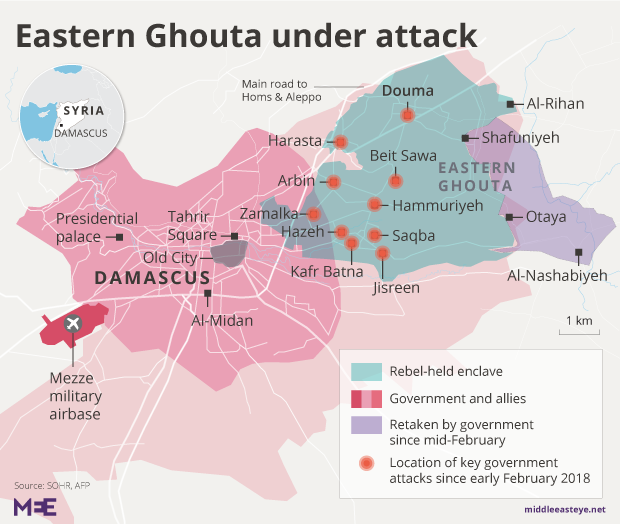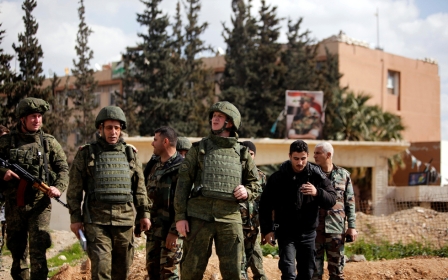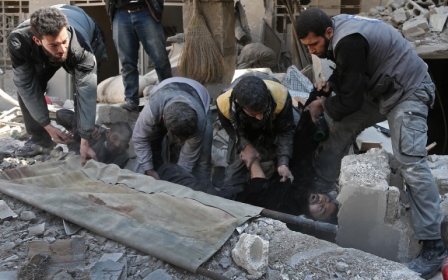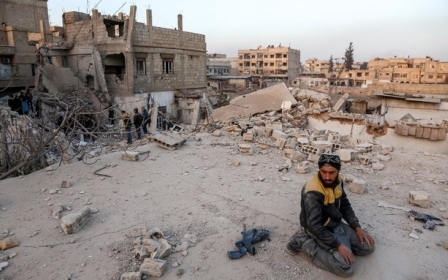US condemns 'brutal' assault on Syria's Eastern Ghouta
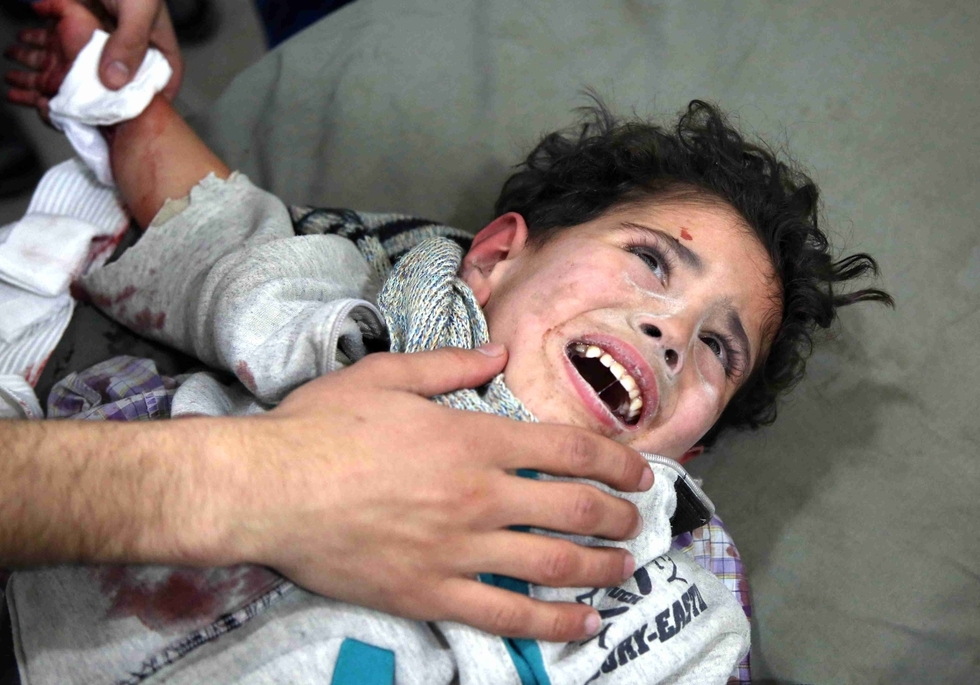
The United States on Sunday condemned Syria's "brutal" Russian-backed assault on the Eastern Ghouta rebel enclave that has reportedly left hundreds of civilians dead.
"The United States condemns the ongoing military offensive that the Assad regime, backed by Russia and Iran, is perpetrating against the people of Eastern Ghouta," the White House said in a statement, referring to Syrian President Bashar al-Assad.
Washington also accused Moscow of ignoring a UN Security Council resolution calling for a 30-day cessation of hostilities, saying Russia has killed "innocent civilians under the false auspices of counterterrorism operations.
"This is the same combination of lies and indiscriminate force that Russia and the Syrian regime used to isolate and destroy Aleppo in 2016, where thousands of civilians were killed," it said, referring to Syria's one-time economic hub, which was devastated by the country's civil war.The White House also called on pro-government forces to "immediately cease targeting medical infrastructure and civilians" in Eastern Ghouta.
Trump, May phone call
Russia and Syria are responsible for the "heart-breaking human suffering" in the Syrian rebel-held enclave of Eastern Ghouta, US President Donald Trump and British Prime Minister Theresa May said on Sunday.
The two leaders discussed the "appalling humanitarian situation in Eastern Ghouta" during a phone call Sunday detailed by May's Downing Street office.
"They agreed it was a humanitarian catastrophe, and that the overwhelming responsibility for the heart-breaking human suffering lay with the Syrian regime and Russia, as the regime's main backer," the prime minister's office said.
Syria's government forces have seized control of over a quarter of Eastern Ghouta, on the edges of the capital Damascus, the Syrian Observatory for Human Rights said Sunday.
May and Trump said "Russia and others with influence over the Syrian regime must act now to cease their campaign of violence and to protect civilians".
The Syrian government's advance on Eastern Ghouta comes after 15 days of devastating air strikes, artillery fire and rocket attacks that are reported to have left more than 640 civilians dead.
Macron urges Tehran to 'pressure' Syria
Meanwhile, French President Emmanuel Macron called on his Iranian counterpart Hassan Rouhani on Sunday to put the "necessary pressure" on the Syrian government to halt "indiscriminate" attacks on civilians in Eastern Ghouta.
During a telephone call between the two leaders, Macron underscored the "particular responsibility for Iran, because of its ties to the regime, regarding the implementation of the humanitarian truce" sought by the UN, his office said.
The two presidents expressed their agreement to work together in the coming days along with the UN, in conjunction with the Damascus regime and the main countries involved in Syria, to secure results on the ground, supply necessary aid to civilians and implement an effective ceasefire
- French President Emanuel Macron
"The two presidents expressed their agreement to work together in the coming days along with the UN, in conjunction with the Damascus regime and the main countries involved in Syria, to secure results on the ground, supply necessary aid to civilians and implement an effective ceasefire," Macron's office said.
He and Rouhani are expected to speak again later this week.
The United Nations has called for a 30-day ceasefire in Eastern Ghouta, but so far government-backer Russia has declared only a five-hour daily "humanitarian pause".
New MEE newsletter: Jerusalem Dispatch
Sign up to get the latest insights and analysis on Israel-Palestine, alongside Turkey Unpacked and other MEE newsletters
Middle East Eye delivers independent and unrivalled coverage and analysis of the Middle East, North Africa and beyond. To learn more about republishing this content and the associated fees, please fill out this form. More about MEE can be found here.


